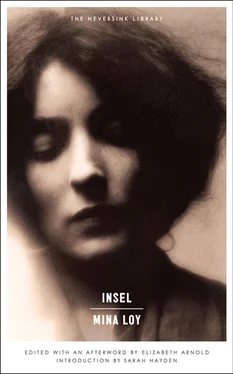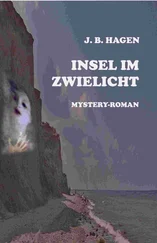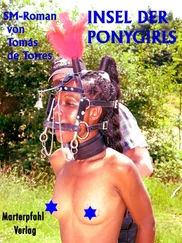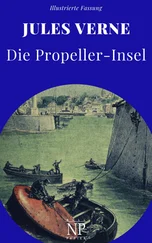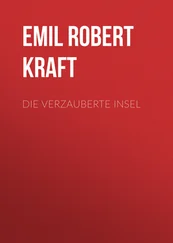A fearful future opened before her if she could never keep shop, and the medical specialists consulted on her behalf promised she would become like average children should they graft a bit of the bone in her leg as a wedge into her spine, thus rectifying her crookedness and relieving the pain. But this operation, successful they said in many other cases, failed with this half-wit angel, who, incidentally, had predicted the year of her own death.
So Fifi died most uncomfortably, lying very much like a trussed duck, only on her tummy — her leg being bent up behind her for the grafting and bound to her back — screaming in a nursing home until she had no more breath.
Only once, in talking to this little girl, had I seen her unhappy. An unhappiness intense as it was brief. A drip of anguished words revealing how she received as an awful animosity her mother’s solicitous efforts to get her to “make sense.”
While undressing to go to bed that night, as if a flash of sympathetic insight “put me in her place,” I suddenly found myself imprisoned in Fifi’s mind.
Strangely enough, it was analagous to my sensation of utter helplessness when dislocating my cervical vertebra, I had found myself without any instrument with which to contact the universe.
But now I was at the mercy of an imperfect instrument. The antennae of the contact with the world in some way crippled for their function seemed — like the umbilical cord in abnormal birth — to be wound round my brain in a fearful constriction, implacable as iron barriers.
My brain, like a bird in ceaseless hurt, beat its wings for the conscious liberation against a cage — or rather, a sort of immature sieve, which would spring a hole intermittently; here and there letting a glimpse of phenomena through — phenomena fitful and unrelated.
Caught in a horror of active impotence, I struggled in terror — unlike Fifi, I could get out.
This gratuitous experience was as nothing to that of disintegration when, on the contrary, one became aware of forces inherent to phenomena, which, being beyond the range of registration by the normal instrument — the conscious organism as it exists in our present stage of evolution — resulted in a super-sensibility so acute it shattered itself to splinters.
The intuitional self is incapable of surprise, but my everyday self was amazed. I felt that for dabbling in the profane mysteries I had got more than was coming to me.
Less than anything on earth did I require a face destroyed as Insel’s; for some while I should walk with misgivings—.
I racked my brain for an explanation of my soaring respect (respect being a sentiment foreign to me) for a loafer who in the light of common sense proved to be actually silly.
Insel, who, so sensible of his essential mystery — communicated that sense of imminent magic inevitably, just when one was in the “thick” of his influence would illustrate his “power” with a story such as how, after dining with married friends, he had predicted to his wife, “ That union will not last long.”
“ Und Tatsächlich ,” he concluded with an expression of awe, “they separated within the year.”
He suffered, it would seem, from the incredible handicap of only being able to mature in the imagination of another. His empty obsession somehow taking form in obsessing the furnished mind of a spectator.
From a distance one remembered him vaguely as an indulgence in a quaint innocuous vice. Still I could scarcely go further with him than dissolution. I decided it would be useless to see him again.
My brain still seemed to be vibrating out of time, when early one evening on leaving a library I wandered into an old church. Somebody up in the organ loft was playing Bach. A sublime repetitive patter of angels’ feet soled with assuagement, giving chase to one another in a variable immobility of eternal arrival, they trod my cerebral vibrations from disarray into tempo once more.
I had not thought of my casual prediction that the whole of Insel’s life would hang upon a key — when on mislaying my own key to my apartment he produced the duplicate I had lent him in the days of his “eviction”— and forgot (the place was still at his disposal) to ask me for it again.
It was a long while before it occurred to me that his girl’s watch was lying at the jeweler’s. By then, all that remained of Insel was a vague impression of trompe l’oeil . I wrote him to call for this love relic, he having assured me that should I have it sent to his address his concierge would seize it towards arrears in rent.
Insel, an eroded scarecrow, greeted me with the somber dignity of a dejected god.
“Why did your girl give you such a rotten watch,” I teased, “the jeweler won’t guarantee it.”
“One takes what one can get,” said Insel with no trace of emotion as I had handed him the erstwhile “Adam and Eve in primeval embrace.” His present concern was for getting back the key. Determined he should not have it, I pretended I was returning to Paris.
Lolling on either end of the great couch, supported by our elbows, our feet on the floor, we were at ease for conversation — the conversation would not begin — Insel being taken up with contracting to some intense concentration that gradually pushed out a sort of pallid ethereal moss to cover his ravaged face.
At last, to my raised eyebrows, “ Ah, liebe Frau Jones,” he complained in prayerful peevishness, “it’s not so easy for me — I don’t mean anything to you anymore.”
“I know,” I said contritely, “I get these wild enthusiasms for things — they don’t last.”
“And we might have had such a wonderful time together,” he sighed.
I COULD NOT MAKE OUT WHY THIS FANTASTICALLY beautiful creature should have both hands round my throat, when Insel, shrunken to a nerve, his eyes fixed as blinded granite, sat at that distance with his fists so tightly clenched. Fingers of automatic pressure rapped their tonnage of abstract force on my jugular — the blood on my brain surged in a noisy confusion— “You are going to give in — obsessed by my beauty — having no hope — endlessly resigned—”
All the air wheezed in my exploding ears as a last breath, “—suffering — suffering — suffering— choked by a robot!” This was not all that suffocated me — myriads upon myriads of distraught women were being strangled in my esophagus.
I had known exhaustive desperation but no such desperation as this — with its power of a universal conception — of limitless application: being impersonal made it the more overwhelming.
“You — are — going — to — give — in.”
“To whom?” I wondered — my eyes closing. “To Insel? Or this incredibly lovely monster made of dead flesh.”
“Thou art fair my beloved, thou—,” rose from a subconscious abyss.
Not wholly convinced I wrenched my eyelids apart — my cerebral current, flowing an infinitessimal fraction of a second faster than the normal, registered Insel. I caught him at it. Swift as the leaves of the shutter on a camera when a snapshot is taken, there came together upon his concentric face a distinct enlargement of Colossus’ photograph that always stood on the sitting room mantlepiece at the other end of the flat.
Simultaneously it came back to me how Insel, on his first visit, had taken that photo between his hands to stare at it inordinately as if for reproduction, for a long time, and at length bringing it nearer to his eyes.
“Such beauty as this,” he said, “could scarcely happen more than once in a hundred years.” He himself put it at two thousand, I had laughingly observed.
Читать дальше
